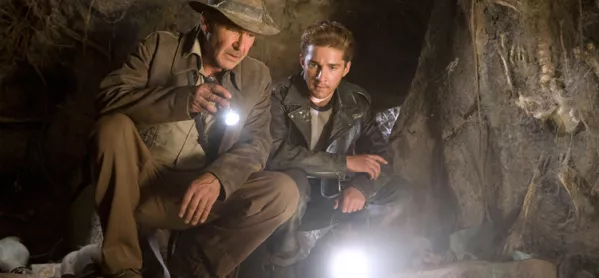At the beginning of a new year, I want to focus on some key elements of science that are becoming renewed in purpose, application and power in the classroom in the United States. They are the foundations of all scientific study: the history of science, the philosophy of science and the nature of science as a practice.
These three topics provide a strong framework for teaching and learning in all science courses, regardless of topic or level. Yet research has shown there are still many misconceptions about how these elements operate and interact.
I am frequently asked what these elements represent and how to integrate them into the classroom in a way that is relevant and meaningful. Too often they are seen as just one more topic to quickly cover at the beginning of a term never to be returned to again.
However, to be effective these elements should be an integral part of what we do in science each day.
The journey of scientific discovery
In the first of a series of pieces on the foundations of science - and exploring what and how to teach them - I spoke to Erik L. Peterson, an assistant professor at the University of Alabama who previously taught in the history of science department at the University of Wisconsin-Madison. Here is part of our illuminating conversation:
Me: When we hear the words “philosophy” and “history”, we often think of humanities and not the hard sciences. However, these things are so closely related and important for scientific literacy. Can you tell us a little bit about what it is that you do?
Professor Paterson: I’m a historian and philosopher of science, which is a fancy way of saying that I look either dangerous or silly to just about everyone - kind of like a manticore or a Chimera.
I primarily focus on the history of evolutionary theory and genetics in the 19th and 20th centuries. That’s the direct science-y stuff that might appear in the curriculum of a biology class.
But I also study the impact of these discoveries on our societies in Europe and the United States. That leads me to look at, on the one hand, rather darker periods in our past - eugenics; scientific racism; the tension between governments, businesses and scientists; and anti-evolution movements, for example - and, on the other hand, the promises of biotechnology; the breakthroughs in medicine; and so on.
I’m also very interested in how discoveries in biology and the societal changes that surround those discoveries make it into biology textbooks and classrooms.
Students ‘just regurgitating answers’
Me: We have all heard the adage about history repeating itself, so knowing where ideas and knowledge come from is obviously important, but how does that understanding apply in science classrooms today?
Professor Paterson: I know it’s unpopular to say this in the USA, but, in my opinion, one of the contributing factors to the fact that European students outperform American students in science by almost every metric, is that in the USA we so often teach science as a seemingly disconnected basket of things to memorize and regurgitate on a test.
By the way, this isn’t the fault of educators, who are absolutely dedicated to making classroom material both up-to-date and engaging, but of those who create our science standards.
Rather than a narrative of hard-wrought discovery, full of fits and starts and all-important historical context, we present science as pat answers - the thing that we already knew would happen, the obvious thing.
Students tell me all the time that they fill in the answers that they know to be the case in their laboratory assignments rather than the answers that actually come out of their experiments because that’s what science is - it’s a series of right answers.
But, of course, what we knew to be the case a century ago we now largely regard as incorrect or incomplete. How could we have been so confident a century ago? And are there things that we absolutely know to be correct today that in another century will turn out to be a dead end?
History suggests yes. At times, the narrative of the history of science feels more like an Indiana Jones-esque treasure hunt than anything else. I wish we taught it this way more often!
Me: That sounds like the kind of personal connection that we want our students to have in the science classroom. Finally, do you have any suggestions for teachers who are interested in learning more about the history and philosophy of science to integrate into their lessons?
Professor Paterson: The History of Science Society is a great place to begin exploring all things related to the history of science and, for more on teaching the history of science, check out all the great stuff coming out of the International History, Philosophy and Science Teaching group (IHPST) and their journal Science & Education.
Dr Amanda Glaze is assistant professor of middle grades and secondary science education at Georgia Southern University
Find resources and curriculum materials on the history and nature of science here.



